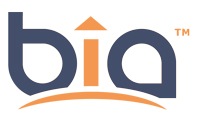
Overview
The Cost of Quality (CoQ) refers to the total cost of quality-related efforts and deficiencies. According to the American Society for Quality, “Cost of quality isn’t the price of creating a quality product or service. It’s the cost of NOT creating a quality product or service. Every time work is re-done, the cost of quality increases. This can include: the cost of re-working a manufactured item, re-testing of an assembly, re-building a tool, correcting a bank statement, re-working a service, reprocessing a loan operation, replacing a food order in a restaurant, etc. Any cost that will not have been spent if quality were perfect contributes to the cost of quality.” All products, services and processes are measurable and it is possible to identify their cost of quality.
Session Focus
You will participate in group discussions and exercises to learn about the cost of quality; what it means, how to determine it and how to establish performance standards and conformance requirements. You will learn how to analyze and measure your work processes to find the cost of quality opportunities.
Who Should Attend?
Employees and quality professionals who need to improve their understanding and use of all the cost of quality measurements.
Key Outcomes
- Understand what the term Cost of Quality means
- Define quality for each work process
- Determine how to prevent work process failures.
- Establish performance standards and calculate acceptable quality standards
- Understand the meaning of “Conformance to Requirements”
- Determine Non-Conformance Requirements
- Calculate internal and external failures.
- Determine preventative measures for all work processes
- Create standards of performance
- Measure the cost of conformance, non-conformance, internal failure and external failure
- Calculate the cost of quality
- Develop a Quality Statement
Course Duration
1 Day

